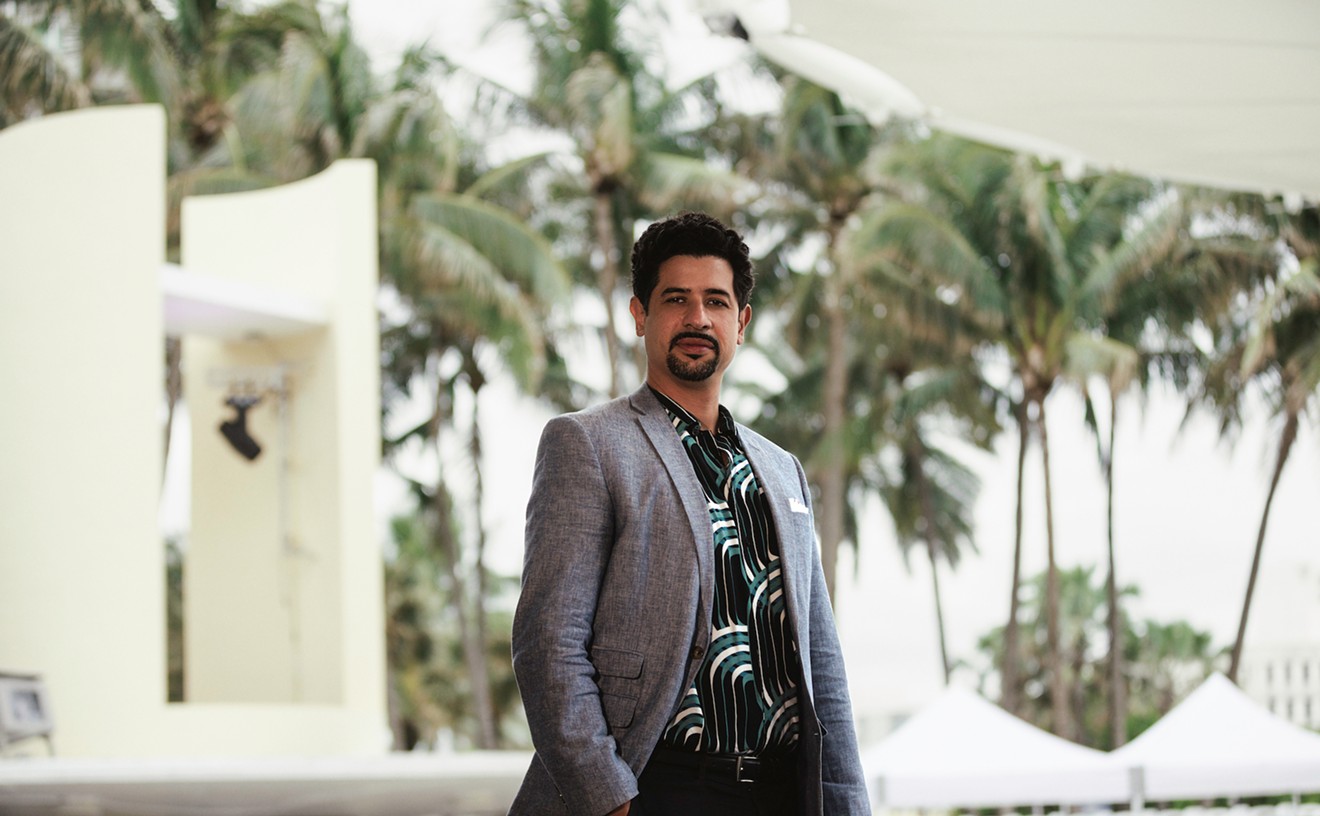Oh, Morrissey.
On record, he is often compared to a lyrical Oscar Wilde, but his day-to-day outbursts occasionally make him seem like a particularly grouchy Truman Capote. From slagging off the British Royal Family and bitching about carnivores to addressing his sexual identity, the Moz has never been shy about expressing dissent or shocking the people he deems "absolutely stupid."
Here are the Moz's six most controversial moments.
So Much to Answer For. When Morrissey and the Smiths released their self-titled debut in 1984, the music charts were awash in disposable pop ditties such as Wham!'s "Wake Me Up Before You Go-Go" and Culture Club's "Karma Chameleon," songs whose meaningless titles did not belie the vapidity of their lyrical content. So the Smiths arrived like a refreshing Mancunian drizzle.
However, The Smiths is by far the band's darkest record. Songs such as "Reel Around the Fountain" and "The Hand That Rocks the Cradle" were denounced by the moronic tabloid press as condoning child abuse and encouraging pedophilia. Lyrics like "It's time the tale were told of how you took a child and you made him old" and "You can pin and mount me like a butterfly" left the pitchfork posse frothing.
The album closer "Suffer Little Children" went further. That song tells the story of the Moors Murders, a series of infamous sexual assaults and child killings committed by Ian Brady and his girlfriend Myra Hindley in the Manchester area during the early '60s. Using the real names of the victims, Morrissey was accused of glamorizing the murderers, both still living at the time, and several record stores removed The Smiths from their shelves. He insisted he meant no offense. And later he met a mother of one of the murder victims after writing to her to explain the song was, in fact, a tribute to the children.
Maggie, Please Die. Of course, the controversy doesn't always come to Morrissey. Most often, the Moz courts it. Such was the case with his repeated attacks on Margaret Thatcher. It all began in 1984 when he waxed lyrical about his loathing for the then-prime minister, a woman who he said should be "destroyed." Overzealous police soon searched the singer's home and carried out a fruitless investigation. Undeterred, he went after the Iron Lady again on his solo classic "Margaret on the Guillotine" in 1988, with the catchy refrain, "When will you die? When will you die?" That question was answered in 2012, which prompted him to offer the interesting eulogy: "She had no wit and no warmth, and even her own cabinet booted her out."
Screw the Royals, Kill the Knights. The British Royal Family has also endured the regular lashings of the singer's silver tongue. Frequent comparisons to rampant dictators and fascists, along with criticisms of the Royals' preference for hunting, litter his interviews. It is doubtful Moz will ever receive a knighthood, like Elton John, an artist whose demise Morrissey once declared would be "one instance in which meat would not be murder."
The Immigration Explosion. Over the years, the Moz has occasionally been accused of racism — most notably by British music weekly NME — for allegedly fetishizing skinheads, questioning the costs of immigration, and other such things. A performance in 1992, featuring the Union Jack and an image of two female skins, led the publication to question the singer's apparent far-right tendencies. A decade and a half later, the two parties found themselves feuding again over a 2007 interview that quoted Morrissey as saying, "Although I don't have anything against people from other countries, the higher the influx into England the more the British identity disappears. So the price is enormous." The next year, the withdrawal of NME's $100,000 sponsorship of the Love Music Hate Racism concert was filled by none other than Morrissey himself, and the relationship between the singer and the magazine remains strained to this day.
People Are Beasts. Rather than even the human race itself, it is the human race's carnivorous propensities that really get Morrissey's goat, and his extreme veganism has drawn exasperated sighs from lovers and haters alike. Though Moz has often been a noble defender of animal rights, it has also caused him to boycott Canada, spit venomously toward TV chefs, and abruptly abandon a performance at Coachella in 2009.
Oh, and China's treatment of animals provoked a slur that the Chinese were a "subhuman species." Then, two days after Anders Breivik's massacre of 77 people in Norway, Morrissey clumsily said the killings were "nothing compared to what happens in McDonald's and Kentucky Fried Shit every day."
Humasexual. Some believe he's gay. Others think he's bi. He once declared himself celibate. But considering his tirades against the human race, it isn't surprising that the Moz's sexuality is even more complicated. In an official statement released to the Morrissey-sanctioned fansite True to You, he finally explained: "Unfortunately, I am not homosexual. In technical fact, I am humasexual. I am attracted to humans. But, of course... not many."










